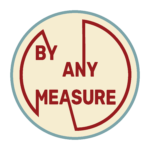In this podcast, folklife presenter, educator, radio producer, and 2023 National Heritage Fellow Nick Spitzer discusses his multifaceted career, his upbringing, and his understanding of cultural innovation in America. We talk about his life-long passion for radio and his discovery and embrace of American vernacular culture, his career as folklorist in academia, government, and … [Read more...] about Meet the Creator and Host of “American Routes”, Nick Spitzer
Quick Study: U.S. Public Perceptions of Artists
In today’s episode, we consider evolving public perceptions of artists as community members and change-makers, based on nationally representative survey data. A transcript is available on the NEA website. … [Read more...] about Quick Study: U.S. Public Perceptions of Artists
Indelible Ink: The Lasting Benefits of Print Media for Reading Comprehension
When I was in elementary school, I had a freakish talent, more like a parlor trick. You could give me any book from the classroom or school library shelves, and I would open it to a random page, take a whiff, and, shutting it, pronounce the year of the print run. More often than not, I got within a year or two. On one occasion, when I hit the bullseye, my challenger stared at … [Read more...] about Indelible Ink: The Lasting Benefits of Print Media for Reading Comprehension
Meet Karen Ann Daniels–Director of Programming and Artistic Director at the Folger Theatre
Karen Ann Daniels explores her dual roles at the Folger Shakespeare Library as the Director of Programming and Artistic Director at the Folger Theatre, and her innovative approach to programming and audience engagement in the evolving landscape of theater post-pandemic. Daniels discusses her arrival at the Folger during a period of significant change, including the pandemic, … [Read more...] about Meet Karen Ann Daniels–Director of Programming and Artistic Director at the Folger Theatre
Quick Study: Breaking Down Engagement
In this episode, we discuss what “engagement” means, in the context of nonprofit arts organizations working with audiences, communities, and civic affairs. A transcript is available on the NEA website. … [Read more...] about Quick Study: Breaking Down Engagement

